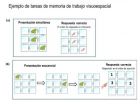(Press-News.org) Good mental health and clear thinking depend upon our ability to store and manipulate thoughts on a sort of "mental sketch pad." In a new study, Yale School of Medicine researchers describe the molecular basis of this ability — the hallmark of human cognition — and describe how a breakdown of the system contributes to diseases such as schizophrenia and Alzheimer's disease.
"Insults to these highly evolved cortical circuits impair the ability to create and maintain our mental representations of the world, which is the basis of higher cognition," said Amy Arnsten, professor of neurobiology and senior author of the paper published in the Feb. 20 issue of the journal Neuron.
High-order thinking depends upon our ability to generate mental representations in our brains without any sensory stimulation from the environment. These cognitive abilities arise from highly evolved circuits in the prefrontal cortex. Mathematical models by former Yale neurobiologist Xiao-Jing Wang, now of New York University, predicted that in order to maintain these visual representations the prefrontal cortex must rely on a family of receptors that allow for slow, steady firing of neurons. The Yale scientists show that NMDA-NR2B receptors involved in glutamate signaling regulate this neuronal firing. These receptors, studied at Yale for more than a decade, are responsible for activity of highly evolved brain circuits found especially in primates.
Earlier studies have shown these types of NMDA receptors are often altered in patients with schizophrenia. The Neuron study suggests that those suffering from the disease may be unable to hold onto a stable view of the world. Also, these receptors seem to be altered in Alzheimer's patients, which may contribute to the cognitive deficits of dementia.
The lab of Dr. John Krystal, chair of the department of psychiatry at Yale, has found that the anesthetic ketamine, abused as a street drug, blocks NMDA receptors and can mimic some of the symptoms of schizophrenia. The current study in Neuron shows that ketamine may reduce the firing of the same higher-order neural circuits that are decimated in schizophrenia.
"Identifying the receptor needed for higher cognition may help us to understand why certain genetic insults lead to cognitive impairment and will help us to develop strategies for treating these debilitating disorders," Arnsten said.
###
This research was supported by NIH grants PO1 AG030004 and RL1 AA017536 within U54RR024350.
Other Yale authors are Min Wang, Yang Yang, Nao J. Gamo, Lu E. Jin, and James A. Mazer. Authors from Mt. Sinai School of Medicine are John H. Morrison, and Ching-Jung Wang.
Human cognition depends upon slow-firing neurons
2013-02-20
ELSE PRESS RELEASES FROM THIS DATE:
'Inspiring' teens with 'research virus': Expert-mentored bioscience contest proves a powerful vector
2013-02-20
Testimonials and responses to a survey from 375 past teen participants in a Canadian biotechnology competition -- mentored in professional labs by expert scientists -- show a majority of respondents were influenced by the experience to pursue science research studies and careers, offering a model for countries worldwide to advance their health and economic interests.
In a survey of 375 past participants by Bioscience Education Canada, which runs the "Sanofi BioGENEius Challenge Canada," 84% said their participation helped determine their field of study or career plan; ...
Fragile X makes brain cells talk too much
2013-02-20
The most common inherited form of mental retardation and autism, fragile X syndrome, turns some brain cells into chatterboxes, scientists at Washington University School of Medicine in St. Louis report.
The extra talk may make it harder for brain cells to identify and attend to important signals, potentially establishing an intriguing parallel at the cellular level to the attention problems seen in autism.
According to the researchers, understanding the effects of this altered signaling will be important to developing successful treatments for fragile X and autism.
"We ...
Cost of medication and stigma leading asthma sufferers to risk health
2013-02-20
The high cost of medication, stigmatisation and poor acceptance of their condition are causing young adults to take a dangerous approach to managing their asthma, according to new research published today in the journal BMJ Open.
In the UK 5.4 million people are currently receiving treatment for asthma: 1.1 million children (one in 11) and 4.3 million adults (one in 12). There were 1,131 deaths from asthma in the UK in 2009. Most asthma deaths are preventable.
Despite the availability of effective treatments, poor asthma control is common.
The overuse of short-acting ...
Simple measures to promote sleep can reduce delirium in intensive care patients
2013-02-20
A hospital is not the best place to get a good night's sleep, especially in a noisy intensive care unit. It's a cause for concern because studies have shown that a lack of sleep can cause patients to experience delirium—an altered mental state that may delay their recovery and lead to short and long-term confusion and memory problems.
A team of doctors, nurses, psychologists and pharmacists in the medical intensive care unit (MICU) at The Johns Hopkins Hospital implemented a project to see if by taking simple steps to reduce nighttime noise, light,and staff interruptions, ...
Tool boosts success of online collaborations by redistributing the burdens of leadership
2013-02-20
PITTSBURGH—The Web makes it possible for lots of people to collaborate on projects, but it doesn't make it easy to lead them. A Carnegie Mellon University researcher has developed a new tool that helps leaders see complex, collaborative projects through to completion by redistributing leadership responsibilities.
The tool, called Pipeline, makes it easier to assign, critique and track the progress of individual tasks within a project and makes it easy for leaders to delegate responsibility to others. As evidenced by a case study in which Pipeline was used to manage the ...
First signals from brain nerve cells with ultrathin nanowires
2013-02-20
Electrodes operated into the brain are today used in research and to treat diseases such as Parkinson's. However, their use has been limited by their size. At Lund University in Sweden, researchers have, for the first time, succeeded in implanting an ultrathin nanowire-based electrode and capturing signals from the nerve cells in the brain of a laboratory animal.
The researchers work at Lund University's Neuronano Research Centre in an interdisciplinary collaboration between experts in subjects including neurophysiology, biomaterials, electrical measurements and nanotechnology. ...
Researchers decipher modus operandi of potential Alzheimer's drug
2013-02-20
This press release is available in German.
The study published in "Angewandte Chemie" might help to work out strategies for developing potential drugs. As the team of scientist including Markus Zweckstetter and Eckhard Mandelkow report, methylene blue inactivates molecular residues that promote the bonding of tau proteins.
Methylene blue is a multi-talented substance with a long history. The synthetic compound was first produced in 1876, and since then has served not only as a blue dye, but also as a medical drug – for example to treat malaria and prevent urinary ...
Bilingual children have a better 'working memory' than monolingual children
2013-02-20
A study conducted at the University of Granada and the University of York in Toronto, Canada, has revealed that bilingual children develop a better working memory –which holds, processes and updates information over short periods of time– than monolingual children. The working memory plays a major role in the execution of a wide range of activities, such as mental calculation (since we have to remember numbers and operate with them) or reading comprehension (given that it requires associating the successive concepts in a text).
The objective of this study –which was published ...
Healthy rivalry could boost sport and business performance
2013-02-20
New research shows that people can recover from poor performance when rivals comment on their failures. The research, to be published in the Journal of Experimental Social Psychology, shows that while criticism from team members sends individuals into downward performance spirals, external criticism can be a trigger that boosts performance as people try to prove the outsiders wrong. The research carried out by the University of Exeter, Amherst College and the University of Stirling offers a method of improving performance following setbacks and can be applied both in the ...
New taxonomy of platinum nanoclusters
2013-02-20
Physicists have gained new insights into the inner intricacies of the structural variations of metallic nanoclusters. This work by Luca Pavan, Cono Di Paola and Francesca Baletto from King's College London, UK, is about to be published in EPJ D. It takes us one step closer to tailoring on-demand characteristics of metallic nanoparticles. Indeed, the geometric structure of these nanoclusters influences their chemical and physical properties, which differ from those of individual molecules and of bulk metals.
The problem resides in the difficulty in evaluating the optimal ...

